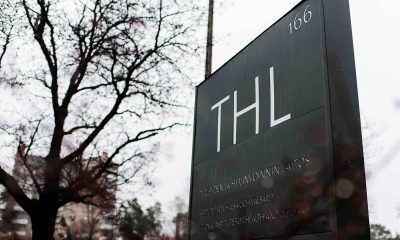Industry News
Insights on the Online Gambling Global Market to 2030 – Identify Growth Segments for Investment

The “Online Gambling Global Market Opportunities and Strategies to 2030: COVID-19 Growth and Change” report has been added to ResearchAndMarkets.com’s offering.
This report provides strategists, marketers and senior management with the critical information they need to assess the global online gambling market.
The global online gambling market reached a value of nearly $58,960 million in 2019, having increased at a compound annual growth rate (CAGR) of 9.9% since 2015. The market is expected to grow from $58,960 million in 2019 to $92,860 million in 2023 at a rate of 12.0%. The market is expected to grow from $92,860 million in 2023 to $113,120 million in 2025 at a CAGR of 10.4%. The market is expected to grow and reach $185,740 billion in 2030 with a CAGR of 10.4%.
Reasons to Purchase
- Outperform competitors using accurate up to date demand-side dynamics information.
- Understand how the market is being affected by the coronavirus and how it is likely to emerge and grow as the impact of the virus abates.
- Identify growth segments for investment.
- Facilitate decision making on the basis of historic and forecast data and the drivers and restraints on the market.
- Create regional and country strategies on the basis of local data and analysis.
- Stay abreast of the latest customer and market research findings
- Benchmark performance against key competitors.
- Develop strategies based on likely future developments.
- Utilize the relationships between key data sets for superior strategizing.
- Suitable for supporting your internal and external presentations with reliable high quality data and analysis
- Gain a global perspective on the development of the market.
The report covers the following chapters
- Executive Summary – The executive summary section of the report gives a brief overview and summary of the report
- Report Structure – This section gives the structure of the report and the information covered in the various sections.
- Introduction – The introduction section of the report gives brief introduction about segmentation by geography, segmentation by game type, and by device.
- Market Characteristics – The market characteristics section of the report defines and explains the online gambling market. This chapter also defines and describes goods and related services covered in the report.
- Trends and Strategies – This chapter describes the major trends shaping the global online gambling market. This section highlights likely future developments in the market and suggests approaches companies can take to exploit these opportunities.
- COVID Impact Analysis – This section provides an insight on how the pandemic is impacting the online gambling market.
- Global Market Size and Growth – This section contains the global historic (2015-2019) and forecast (2019-2023), (2023-2025), and (2025-2030) market values, and drivers and restraints that support and control the growth of the market in the historic and forecast periods.
- Regional Analysis – This section contains the historic (2015-2019) and forecast (2019-2023), (2023-2025), and (2025-2030) market values and growth and market share comparison by region.
- Segmentation – This section contains the market values (2015-2030) and analysis for different segments.
- Regional Market Size and Growth – This section contains the region’s market size (2019), historic (2015-2019) and forecast (2019-2023), (2023-2025), and (2025-2030) market values, and growth and market share comparison of countries within the region. This report includes information on all the regions Asia-Pacific, South America, Middle East and Africa and major countries within each region. The market overview sections of the report describe the current size of the market, background information, government initiatives, regulations, regulatory bodies, associations, corporate tax structure, investments, and major companies.
- Competitive Landscape – This section covers details on the competitive landscape of the global online gambling market, estimated market shares and company profiles for the leading players.
- Key Mergers and Acquisitions – This chapter gives the information on recent mergers and acquisitions in the market covered in the report. This section gives key financial details of mergers and acquisitions which have shaped the market in recent years.
- Market Opportunities and Strategies – This section includes market opportunities and strategies based on findings of the research. This section also gives information on growth opportunities across countries, segments and strategies to be followed in those markets. It gives an understanding of where there is significant business to be gained by competitors in the next five years.
- Conclusions and Recommendations – This section includes conclusions and recommendations based on findings of the research. This section also gives recommendations for online gambling companies in terms of product/service offerings, geographic expansion, marketing strategies and target groups.
- Appendix – This section includes details on the NAICS codes covered, abbreviations and currencies codes used in this report.
Growth in the historic period resulted from growing adoption of smartphones with improved internet accessibility, rise in disposable incomes and growth of the experience economy. This growth was restricted by stringent regulations, and growing privacy concerns.
Going forward, increasing involvement during the COVID-19 pandemic, technically advanced platforms, changing consumer gambling habits and legalization of gambling are expected to drive the market. Global recession, stringent government regulations on gambling, regulatory restrictions to curb gambling addiction and demographic changes are major factors that could hinder the growth of the online gambling market in the future.
The online gambling market is segmented by game type into betting, casino, lottery, poker, online bingo and others. The betting was the largest segment of the online gambling market by game type, accounting for 47.0% of the total market in 2019. Going forward, lottery segment is expected to be the fastest growing segment in the online gambling market, at a CAGR of 16.4%.
The online gambling market is also segmented by device into desktop, mobile and other devices. The desktop was the largest segment of the online gambling market by device, accounting for 57.6% of the total market in 2019. Going forward, the mobile segment is expected to be the fastest growing segment in the online gambling market, at a CAGR of 13.3%.
Asia Pacific was the largest region in the global online gambling market, accounting for 31.7% of the total in 2019. It was followed by the Western Europe, North America and then the other regions. Going forward, the fastest-growing regions in the online gambling market will be Eastern Europe and Asia Pacific, where growth will be at CAGRs of 16.3% and 12.5% respectively. These will be followed by Western Europe and Africa, where the markets are expected to register CAGRs of 9.3% and 9.3% respectively.
The online gambling market is fragmented, with a large number of small players in the market. The top ten competitors in the market made up to 26.1% of the total market in 2019. Major players in the market include bet365 Group Ltd., GVC Holdings PLC, The Stars Group Inc., Flutter Entertainment plc and Kindred Group plc.
The top opportunities in the online gambling market segmented by game type will arise in the betting segment, which will gain $ 14,786.0 million of global annual sales by 2023. The top opportunities in the online gambling market segmented by device will arise in the mobile segment, which will gain $ 16,721.3 million of global annual sales by 2023. The online gambling market size will gain the most in the China at $3,997.1 million. Market-trend-based strategies for the online gambling market includes investing in AI technology, integrating cryptocurrency as a payment mode, investing in AR and VR technology, building mobile apps, sponsoring sports events with large viewership and providing free access to games with certain main features in paid versions to attract a greater number of users. Player-adopted strategies in the online gambling market include investing in expanding operations through innovative product launches, and in acquisitions and mergers to strengthen their service offerings.
For more information about this report visit https://www.researchandmarkets.com/r/mzq59g
Source: GlobeNewsWire
Powered by WPeMatico
Gaming Laboratories International
GLI Promotes Patrick Cottingham to Director of Client Services, North America

Gaming Laboratories International (GLI) has promoted Patrick Cottingham to Director of Client Services, North America. Previously, he served as Senior Manager of Client Services. Prior to commencing his career as an engineer with GLI, he served with the US Air Force.
Cottingham’s dedication to his clients was clearly evident both inside and outside of GLI. He transitioned to the Client Services team where he progressed and built a team laser focused on providing the very best customer service where his and his team’s clients have benefited from his engineering and gaming experience.
Ian Hughes, GLI Chief Revenue Officer, said: “We are thrilled to announce Patrick’s well-deserved promotion to Director of Client Services for North America. Patrick leads a team of dedicated and committed client services representatives who ensure our clients receive the best service during their compliance journey with GLI.”
The post GLI Promotes Patrick Cottingham to Director of Client Services, North America appeared first on Americas iGaming & Sports Betting News.
Blueprintx
Zingo Bingo Launches “Your Era” Nostalgia Series Featuring Kerry Katona and Pat Sharp

Zingo Bingo Launches “Your Era” – A Social-First Nostalgia Series for 2026
Zingo Bingo has officially unveiled Your Era, a new short-form social media content series celebrating iconic throwbacks, shared nostalgia and the cultural moments that defined generations. The series launches in February 2026 and will roll out weekly across TikTok, Instagram, Facebook and YouTube.
Designed to strengthen Zingo Bingo’s identity as a home of nostalgic fun, Your Era focuses on authentic conversation rather than traditional promotional content. The format highlights music, fashion, technology and pop culture milestones that shaped each guest’s personal journey.
Kerry Katona and Pat Sharp Headline Series One
The first confirmed guests include Kerry Katona, singer and media personality best known from Atomic Kitten, and Pat Sharp, the iconic radio and TV presenter associated with classic UK entertainment shows. Additional celebrity names will be revealed throughout the year.
Each episode features five themed nostalgia segments crafted to spark memories, conversation and emotional connections among viewers.
What to Expect from “Your Era”
Every guest takes part in recurring throwback features designed to boost engagement and relatability:
- The Memory Bag – Guests reveal five nostalgic items and share the stories behind them
- Flashback Files – A rapid-fire interview covering music, fashion, tech and cultural trends
- Mixtape Memories – Guests curate throwback tracks for the official Your Era playlist
- Taste of the Past – Sampling retro sweets and snacks while rating nostalgia levels
- Yesterday’s News – A humorous headline-guessing game using real throwback media stories
The series aims to tap into the growing popularity of nostalgia-driven digital content while positioning Zingo Bingo as a community-led entertainment brand.
Built by Kinetic Digital and Blueprintx
Your Era has been developed by Zingo Bingo’s operators, Kinetic Digital, in collaboration with long-term creative partner Blueprintx. Blueprintx has previously supported digital and television campaigns for Kinetic Digital brands including Prime Casino and Slingo.
The production strategy prioritises shareable, short-form content optimised for social discovery and influencer amplification, with episodes distributed across dedicated platform pages as well as guest channels.
A Strategic Play for Community Engagement
Jack Watson, Brand Manager at Zingo Bingo, said the series reflects the brand’s commitment to fun, familiarity and connection.
“Your Era is about celebrating the music we replayed, the fads we cringe at and the memories that still make us smile. It’s designed to bring people together through shared nostalgia while reminding audiences that bingo is about enjoying those moments collectively.”
Series one will feature six guests throughout 2026, with new weekly segments designed to drive audience engagement and repeat viewership.
The post Zingo Bingo Launches “Your Era” Nostalgia Series Featuring Kerry Katona and Pat Sharp appeared first on Eastern European Gaming | Global iGaming & Tech Intelligence Hub.
Industry News
Ex-Paysafe VP Justin Fraser takes chief revenue officer role at Yaspa to drive global growth

Yaspa, the renowned fintech focusing on instant payments and identity solutions, today reveals the appointment of Justin Fraser as its Chief Revenue Officer.
Fraser becomes part of Yaspa’s executive team during a crucial period of global growth. He has more than 20 years of commercial leadership experience in the payments ecosystem, having occupied senior leadership positions at notable industry companies like Cybersource, Visa, and Paysafe.
Having a career centered on maneuvering through intricate payment environments, he offers knowledge in rapidly expanding, regulated sectors such as iGaming, cryptocurrency, and financial technology.
As the new CRO, Fraser will manage Yaspa’s worldwide commercial strategy, concentrating on expanding the company’s Intelligent Payment platform, which integrates open banking with AI-powered customer insights, throughout the UK, Europe, and North America.
Yaspa CEO James Neville said: “We are thrilled to welcome Justin to the team during this period of rapid acceleration. His deep expertise in navigating complex regulatory environments and his proven track record in scaling payment solutions are invaluable assets as we expand our footprint in the US and beyond. Justin’s appointment further strengthens our leadership as we continue to help businesses lower costs, grow revenues, and enhance financial compliance through open banking.”
Justin Fraser said: “Yaspa is at the forefront of the shift toward real-time payments. The company’s unique blend of open banking and AI-verified insights solves genuine friction for merchants, particularly in industries like iGaming. I am excited to join such an innovative team and look forward to driving the next phase of our commercial growth globally.”
Fraser will collaborate closely with the recently strengthened US team, which includes the newly appointed US Sales Lead, Peter Kula, and US Senior Solutions Manager, Jackson Esoda.
This statement comes after a year of significant growth for Yaspa, highlighted by increasing its workforce from 15 to 75 employees and successfully securing a $12 million investment round spearheaded by Discerning Capital. In this timeframe, the firm broadened its international presence with new ventures in Atlanta and Leeds, while winning esteemed honors such as the 2025 Payments Award for Real-Time Payments Innovation and a spot on the CB Insights Top 100 Fintech list.
The post Ex-Paysafe VP Justin Fraser takes chief revenue officer role at Yaspa to drive global growth appeared first on Eastern European Gaming | Global iGaming & Tech Intelligence Hub.
-

 Amusnet5 days ago
Amusnet5 days agoWeek 7/2026 slot games releases
-

 Aphrodite’s Kiss5 days ago
Aphrodite’s Kiss5 days agoLove on the Reels: Slotland Introduces “Aphrodite’s Kiss”
-

 Finnish Institute for Health and Welfare7 days ago
Finnish Institute for Health and Welfare7 days agoFinland’s Health Authority Launches “2-4-2” Gambling Risk Limits Ahead of Expected Advertising Boom
-

 Latest News7 days ago
Latest News7 days agoWinSpirit’s UnValentine’s Day: A New Take on February Engagement
-

 Denmark6 days ago
Denmark6 days agoRoyalCasino Partners with ScatterKings for Company’s Danish Launch
-

 Bryndís Hrafnkelsdóttir7 days ago
Bryndís Hrafnkelsdóttir7 days agoNOVOVISION Implemented at the University of Iceland Lottery
-

 Balkans7 days ago
Balkans7 days agoExpanse Studios Signs Content Distribution Deal with Lobbet
-

 Booming Games6 days ago
Booming Games6 days agoTreasure Hunt Revival — Booming Games Launches Gold Gold Gold Hold and Win



















